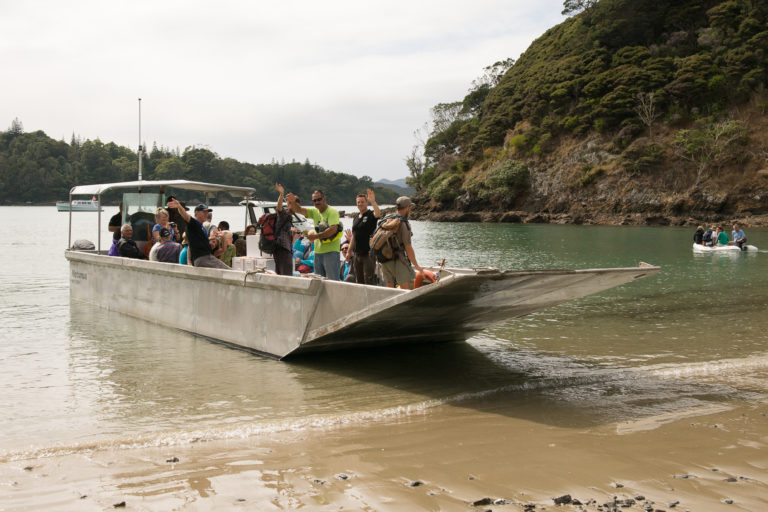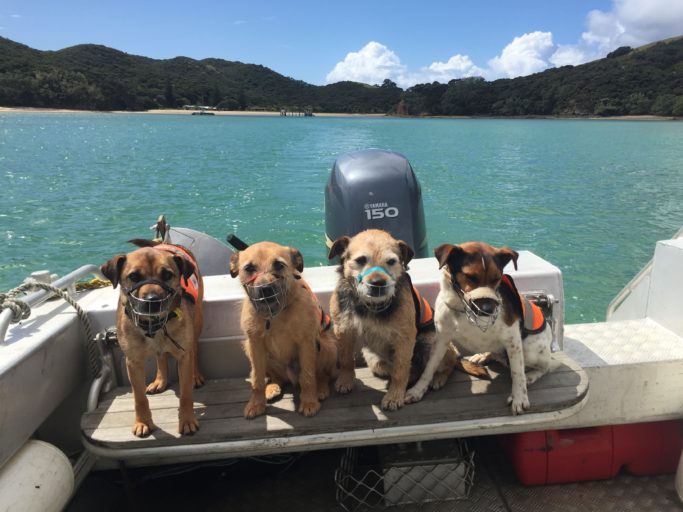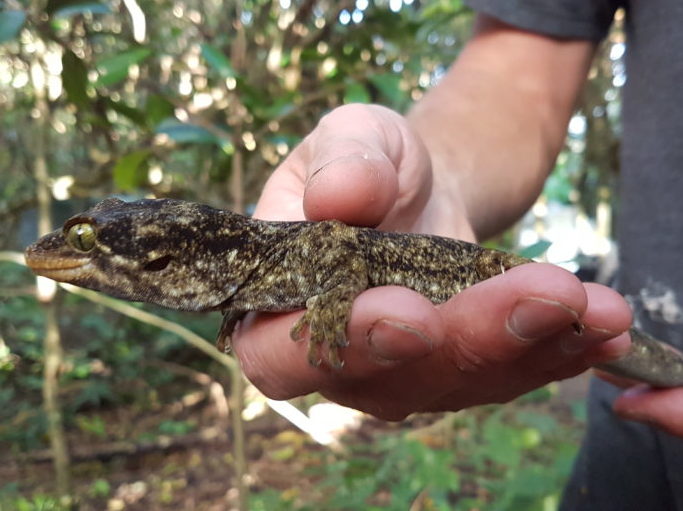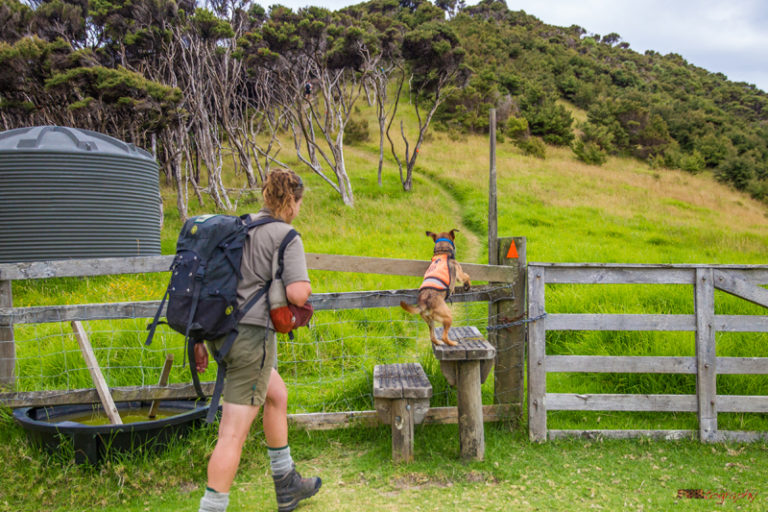Project Island Song is a Bay of Islands wildlife sanctuary that celebrates the native subtropical habitat, lush with vegetation and alive with birdsong. Thousands of trees have been planted, and five rare and endangered species have been reintroduced with more reintroductions planned.

The project is a partnership between community conservation group the Guardians of the Bay of Islands, local Rawhiti hapu (Ngati Kuta and Patukeha) and the Department of Conservation.
The 7 main islands of Ipipiri in the eastern Bay of Islands have now been pest and predator free for 10 years. But Project Island Song’s rangers and volunteers won’t be packing their traps and tracking tunnels up any time soon. They’re keen to stress to visiting members of the public, that the island group’s pest free status should never be taken for granted.

“The issue is that the islands are within easy swimming reach of the mainland for Norway rats and stoats,” explains DOC community ranger, Helen Ough Dealy. “And ship rats and mice can come on boats. But the good news is that so far there’s been no re-establishment of any pest species. Norway rats and the odd ship rat or mouse do turn up and there is the very occasional sighting of a stoat, but there’s been no populations establishing. For 10 years the islands have been pest-free, but with ongoing incursions.”
It means that Project Island Song personnel and island visitors have to be ever-vigilant.
“People report animal footprints on the beach or any bird that’s been killed,” says Helen, “And we have a comprehensive track-monitoring and trapping network that’s maintained all year. We have rodent and stoat-detecting dogs searching the islands at regular intervals and they’re an incredibly useful tool. We also have a cat (detecting) dog once per year, because we have had cats swim to the islands from people’s boats.”
Plague skinks and Argentine ants are also on the biosecurity radar and are arguably even more difficult to detect than rats and stoats.
“There are detector dogs for those species too,” says Helen, “They’re not on the islands yet as far as we know. We’ll be running those detector dogs over the next few months. It took Tiritiri Matangi years to get rid of Argentine ants,” she adds, “And plague skinks eat protein, putting hatching chicks, eggs and native skinks and geckos at risk. They’re also egg layers and so have lots of young, unlike New Zealand lizards which give birth to live young, so the plague skinks out-compete them.”

Both plague skinks and Argentine ants are present on the mainland at the points of departure for the islands – just waiting for their chance of a lift. Because boaties, tourists and campers regularly visit the islands, educating the public about biosecurity is a key part of Helen’s role.
“I do a lot of biosecurity work on the mainland – preventative measures, working with commercial boat operators and educational work,” she says. “There are also a number of volunteer conservation groups and private landowners along the mainland coast facing the islands – including Guardians of the Bay of Islands, Russell Landcare Trust, the Eastern Bay of Islands Preservation Society and Te Tangi o Te Ata and they help keep rodent and stoat numbers down which reduces the risk.”
The largest of the 7 main Ipipiri islands is Urupukapuka.
“Urupukapuka has a wharf for commercial ferries and private boats,” Helen says. “It’s the only island where camping is allowed, with 3 DOC camping grounds. People can camp on Urupukapuka up to a month or 6 weeks. Motuarohia and Moturua Islands have great walking tracks; Poroporo, Okahu and Waewaetorea Islands don’t have tracks but can be landed on,” she says. “People do live on some of the islands; staff servicing the Otehi Bay, Urupukapuka Island café as well as private landowners on Motuarohia and Moturua.”

The number of visitors who come to the islands on tourist boat trips is commercially sensitive, but Helen reckons there would between 100,000 and 200,000 annually. Wild predators stowing a ride aren’t the only issue. There are also problems with people bringing their pets along on holiday.
“Dogs are sometimes exercised on the island and they shouldn’t be,” says Helen. “It’s not only that they can attack wildlife. They also distract breeding birds away from their nest and young and stress the birds.”
Helen emphasises that Project Island Song succeeds or fails on whether pests are kept away.
“Every single person visiting the Islands is part of the ongoing success,” she says. “Everyone needs to check their gear for pests before they leave the mainland and call 0800-DOCHOT (0800 362 468) if they see anything on the islands. Visitors to the islands are the eyes and ears of DOC, because we can’t be there all the time.”

